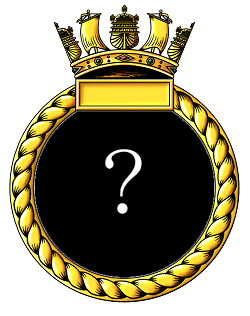



he unit number 716 was first used for a Catapult Flight of the Fleet Air Arm of the RAF. The flight formed on July 15th 1936, under the command of Lt F.E. C. Judd RN, by renumbering No. 443 (Catapult) Flight, to operate in ships of the 6th Cruiser Squadron on the South Africa Station. While it was in home waters the flight had its shore based Headquarters at RAF Mount Batten, Plymouth and RAF Lee-on-Solent from January 1st 1938, and at Simon's Town when on station in South Africa.
The flight operated only a handful of Osprey IV seaplanes, one of which was initially embarked in the Leander Class Cruiser HMS AMPHION which arrived at Simon's Town in October 1936 to spend the next two years as Flagship on the Africa station. Based on the Cape of Good Hope she operated as far north as Dakar on the west coast and Beira on the east. HMS NEPTUNE arrived on station in October 1937 and relieved AMPHION which then began her mid-commission refit at Simon's Town.
The Ospreys were replaced by Seafox Mk I aircraft in October 1937 with the arrival of HMS NEPTUNE . AMPHION departed Simon's Town early in October 1938 to return to the UK. She paid off on December 15th 1938 for a refit and was later sold to the Royal Australian Navy. This left only NEPTUNE in the 6th Cruiser Squadron.

The Fairey Seafox two-seat spotter-reconnaissance floatplane designed to be catapulted from RN cruisers. This aircraft is mounted on its launch cradle on the catapult rail on board the Cruiser HMS ORION. Naval History and Heritage Command NH 57588.
By the end of 1937 the Flight was elevated to squadron status and a new commanding officer, Lt A. J. T. Roe RN, was appointed on April 25th 1938. The Squadron was transferred to Admiralty control on May 24th 1939.
In January 1940 all Catapult Squadrons were merged
into No.700 Squadron which was to assume
responsibility for all ships flights; No.716
Squadron was disbanded at Simon's Town on 21 January
1940.
>
716 squadron reformed at RNAS Eastleigh on June 28th 1944, under the command of Lt. Cdr J. F. Nicholas RN as the Air/Sea Rescue Section of the School of Safety Equipment. The squadron was initially equipped with 2 Sea Otter Amphibians and one Wellington Mk.X1 which were used to provide training for officers and ratings in air/sea rescue.
Training included instruction in the use of safety equipment in use the Navy, with particular reference to naval air/sea rescue apparatus. Instruction and exercises in the use of Visual Signalling, Wireless Telegraphy, Radio Transmission, and Automated Signalling Devices, as applied to air/sea rescue. Conduct navigation and search exercises. Sea Otters were employed to teach rough water landings and the recovery of survivors and the principles of Carrier based air /sea rescue organization. The squadron’s Wellington was employed for dropping air/sea rescue apparatus and shore based air/sea Rescue organization. All pupils were taught first aid techniques to be used on rescued survivors. In addition to its training task the squadron carried out development work on safety equipment.
Squadron.
TheSupermarine Sea Otter amphibian.
Flying from Eastleigh the squadron conducted training flights in the Solent area but a detachment of the squadron joined the escort carrier HMS RULER at Greenock in January 1945 for a few days; a detached air sea rescue Flight was also established at RNAS Lee-on-Solent on March 10th 1945.
There was only one flying accident during the squadron’s time operating with the School of Safety Equipment; on April 13th 1945 Sea Otter JM804 of the Lee-on-Solent detachment porpoised on take-off in the Solent, 1½miles S of the slipway and capsized. The pilot, Lt. S. Green suffered minor injuries but his observer, Lt. E. C. Soughton was killed.
No.716 disbanded at RNAS Eastleigh on 1 September 1945.
Content revised: 23 October 2022
Additional sources:

None
Osprey III/SP Jul 1936 - Feb 1938
Seafox I Oct 1937 - Jan 1940
Walrus I Sep 1939 - Sep 1939
Squadron
disbanded 21 Jan 1940
Sea
Otter I Jul 1944 - Aug 1945
Wellington XI Jul 1944 - Aug 1945
Squadron disbanded 01 Sep 194
Lt. F. E. C. Judd RN (Flt Lt RAF)
15 Jul
1936
Lt. A. J. T. Roe RN
25 Apr
1938
Squadron disbanded 21 Jan 1940
Lt. Cdr. (P) J. F. Nicholas RN
28 Jun
1944
Lt. Cdr (A) D. V. Robinson RNVR
11 May
1945
Squadron disbanded I Sep 1945
None
© 1999-2025 The Royal Navy Research Archive All Rights Reserved Terms of use Powered byW3.CSS
Press F5 to refresh the page after posting your comment or to hide the form
Watch the gun camera footage from his course Click here
Close
Comments (0)